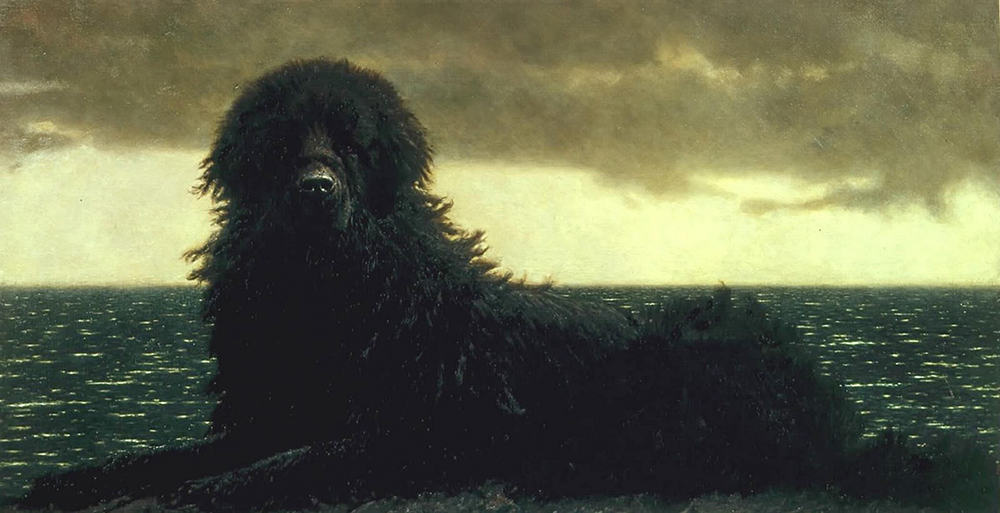 Newfoundland
Newfoundland
(1971)
by
Jamie Wyeth
Jamie Wyeth, son of renowned American painter Andrew Wyeth and grandson of the painter N. C. Wyeth, frequently makes dogs the subjects of his paintings. Newfoundland is a painting of a Newfoundland once owned by Wyeth, named Boom-Boom.
According to Wyeth, this painting was once owned by actor Gregory Peck. Wyeth explained in an interview that Peck's son was very much drawn to this painting, and sent Wyeth letters "about how 'dog' was 'God' spelled backward. Then the son committed suicide. Greg told me the painting fell off the wall the day his son died. Shortly after that, they sold it."
On June 24, 2007, The Morning Call, a regional newspaper in Allentown, Pennsylvania, devoted an article to an exhibit of Jamie Wyeth's dog paintings at the Brandywine River Museum of Art in Chadds Ford, Pennsylvania, a museum devoted the works of Jamie, Andrew, and N. C. Wyeth.
Boom Boom was a capital-C character. Wyeth describes his late Newfoundland as "a drool factory" who catapulted spit onto ceilings and capsized objects with his broom of a tail. Charmingly "inconvenient," Boom Boom slipped and flopped on wooden floors until dancer Rudolf Nureyev, Wyeth's good friend and model, devised an ingenious device.
"There's just something wonderful about a Russian dancer dragging a big black Newfoundland around on a rug," says Wyeth with a laugh. Four decades have passed, and that memorable vision remains "a film that plays in my mind."
Boom Boom is more majestic than spastic in "Newfoundland," the 1971 oil that really begins "Dog Days of Summer." He lounges in front of the Atlantic Ocean like a regal sea lion. He's got the magnetic heft of the big pig in Wyeth's renowned 1970 portrait, a star attraction at the Brandywine River Museum. His enormous black coat has the labyrinthine luxury of Wyeth's 2001 painting of Nureyev swathed in a fur coat, almost swallowed by a furry field.
In fact, Wyeth thought he was painting Newfoundland the island when he was painting Newfoundland the dog. The mind can play tricks, he says, when your model is "an animal whose head is larger than yours."

